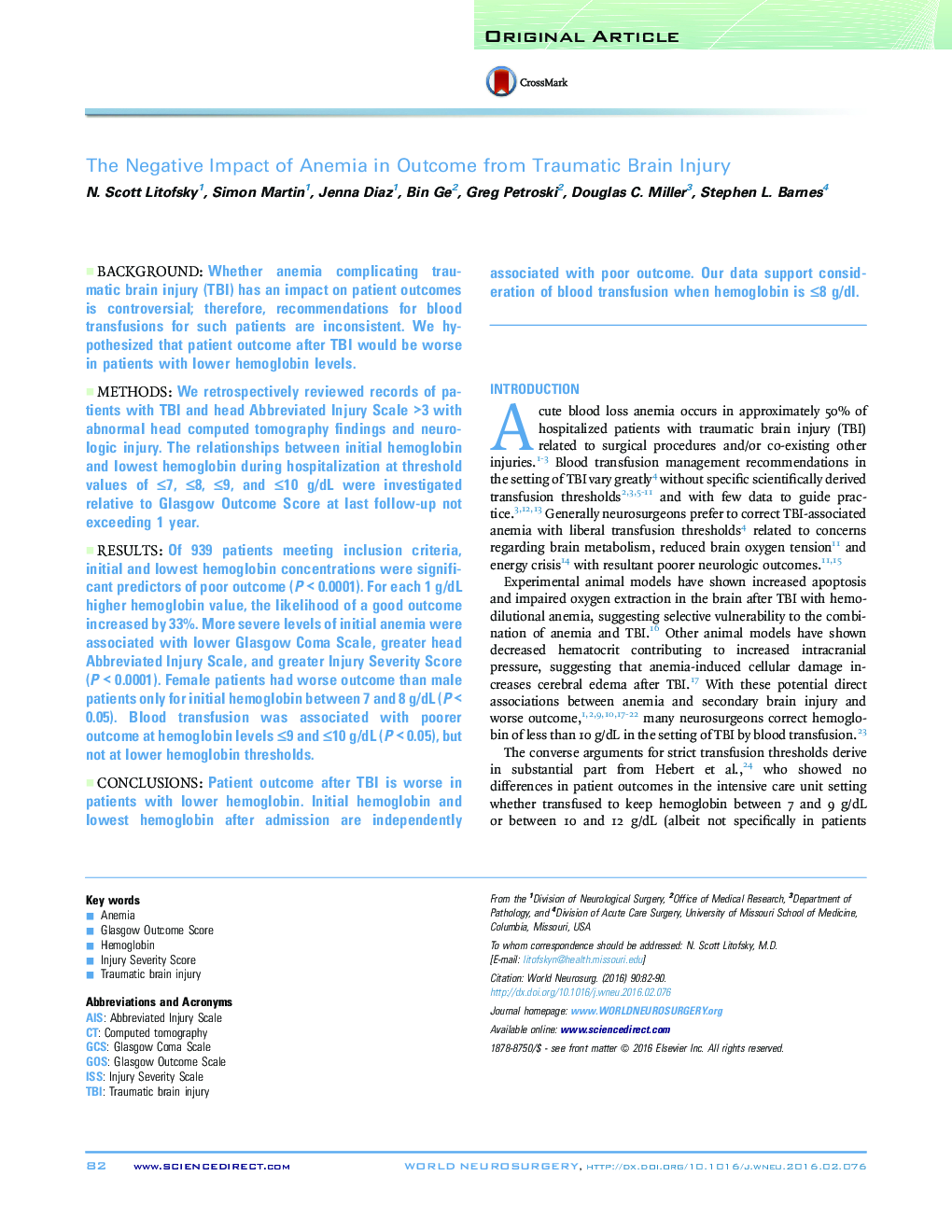| Article ID | Journal | Published Year | Pages | File Type |
|---|---|---|---|---|
| 6043451 | World Neurosurgery | 2016 | 9 Pages |
BackgroundWhether anemia complicating traumatic brain injury (TBI) has an impact on patient outcomes is controversial; therefore, recommendations for blood transfusions for such patients are inconsistent. We hypothesized that patient outcome after TBI would be worse in patients with lower hemoglobin levels.MethodsWe retrospectively reviewed records of patients with TBI and head Abbreviated Injury Scale >3 with abnormal head computed tomography findings and neurologic injury. The relationships between initial hemoglobin and lowest hemoglobin during hospitalization at threshold values of â¤7, â¤8, â¤9, and â¤10 g/dL were investigated relative to Glasgow Outcome Score at last follow-up not exceeding 1 year.ResultsOf 939 patients meeting inclusion criteria, initial and lowest hemoglobin concentrations were significant predictors of poor outcome (P < 0.0001). For each 1 g/dL higher hemoglobin value, the likelihood of a good outcome increased by 33%. More severe levels of initial anemia were associated with lower Glasgow Coma Scale, greater head Abbreviated Injury Scale, and greater Injury Severity Score (P < 0.0001). Female patients had worse outcome than male patients only for initial hemoglobin between 7 and 8 g/dL (P < 0.05). Blood transfusion was associated with poorer outcome at hemoglobin levels â¤9 and â¤10 g/dL (P < 0.05), but not at lower hemoglobin thresholds.ConclusionsPatient outcome after TBI is worse in patients with lower hemoglobin. Initial hemoglobin and lowest hemoglobin after admission are independently associated with poor outcome. Our data support consideration of blood transfusion when hemoglobin is â¤8 g/dl.
